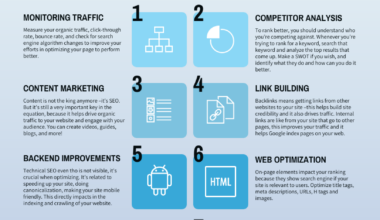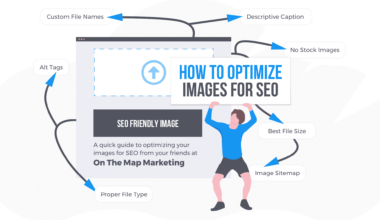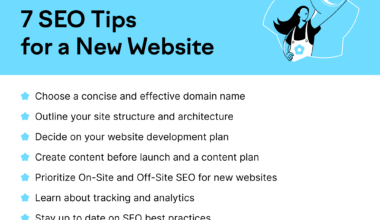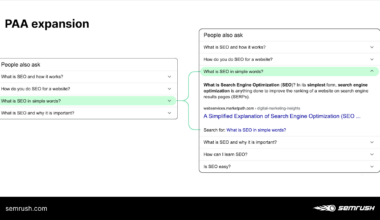Introduction to Local SEO
As a small business owner, it is essential to have an online presence that can be easily found by potential customers. This is where search engine optimization (SEO) comes into play. However, an effective SEO strategy for small businesses should focus on local SEO.
Local SEO refers to the process of optimizing your website to rank higher in local search results. When a user performs a search query with a location-based keyword, such as “coffee shop near me,” search engines will provide results based on the user’s location. Therefore, optimizing your website for local search queries can help your small business attract more local customers.
One of the critical factors in local SEO is Google My Business. Google My Business is a free tool that allows businesses to manage their online presence across Google, including search and maps. By creating and optimizing your Google My Business listing, you can help your business appear in local search results and increase your online visibility.
Another important aspect of local SEO is keyword and content optimization. You need to use relevant keywords in your website’s content, such as your business name, location, and services. Additionally, creating high-quality and engaging content that targets local keywords can help your website rank higher in local search results.
Local link building strategies are also crucial in local SEO. Building links from local websites, such as local directories, can help your website rank higher in local search results. Additionally, having a mobile-friendly website is essential in local SEO, as most local searches are performed on mobile devices.
In summary, local SEO is a critical aspect of small business marketing. By optimizing your website for local search queries, you can attract more local customers and increase your online visibility. In the next sections of this article, we will explore the importance of Google My Business, keyword and content optimization, local link building strategies, and mobile optimization for local search.
Importance of Google My Business
Google My Business (GMB) is a crucial tool for local SEO and improving your online presence. Creating and optimizing your GMB listing can help your small business appear in local search results, Google Maps, and Google’s Knowledge Graph, which displays relevant information about a business in search results.
Here are some reasons why Google My Business is essential for local small businesses:
1. Increased Visibility: By creating and optimizing your GMB listing, your business can appear in the local 3-pack, which is the top three local businesses that appear in search results. This increases your visibility to potential customers who are searching for businesses in your area.
2. Accurate Business Information: GMB allows you to manage and update your business information, such as your business name, address, phone number, website, and business hours. This ensures that potential customers can find accurate and up-to-date information about your business.
3. Customer Reviews: GMB also allows customers to leave reviews about your business. Positive reviews can help attract more customers, while negative reviews can give you an opportunity to improve your business.
4. Google Maps: By claiming and verifying your GMB listing, your business can appear on Google Maps. This makes it easier for potential customers to find your business and get directions to your location.
To optimize your GMB listing, make sure to:
– Include accurate and up-to-date business information
– Choose relevant categories for your business
– Add photos and videos of your business
– Encourage customers to leave reviews
– Respond to customer reviews, both positive and negative
In conclusion, Google My Business is an essential tool for local small businesses to improve their online presence and attract more local customers. By creating and optimizing your GMB listing, you can increase your visibility in local search results, provide accurate business information, and engage with customers through reviews.
Keywords and Content Optimization
Keywords and content optimization are crucial aspects of local SEO for small businesses. By using relevant keywords and creating high-quality content, you can improve your website’s visibility in local search results.
Here are some tips for optimizing your website’s keywords and content for local SEO:
1. Research Local Keywords: Conduct keyword research to identify relevant local keywords for your business. Use tools such as Google Keyword Planner, Ubersuggest, and SEMrush to find keywords that your potential customers are searching for.
2. Use Local Keywords in Your Content: Once you have identified relevant local keywords, make sure to use them in your website’s content. This includes your website’s headings, meta descriptions, and body content. However, make sure to use keywords naturally and avoid keyword stuffing, as this can hurt your website’s ranking.
3. Create High-Quality Content: Creating high-quality and engaging content is crucial for local SEO. This includes creating blog posts, landing pages, and product pages that target local keywords. Additionally, make sure to update your content regularly to keep it fresh and relevant.
4. Optimize Your Images: Make sure to optimize your website’s images by using descriptive filenames and alt tags. This helps search engines understand what your images are about and can improve your website’s ranking.
5. Ensure Your Website is Mobile-Friendly: With most local searches being performed on mobile devices, having a mobile-friendly website is crucial for local SEO. Use Google’s Mobile-Friendly Test to ensure that your website is optimized for mobile devices.
6. Use Local Language and Phrases: Incorporating local language and phrases into your website’s content can help improve your website’s visibility in local search results. This includes using local slang, regional terms, and phrases that are unique to your area.
In conclusion, optimizing your website’s keywords and content for local SEO is crucial for small businesses to attract more local customers and improve their online visibility. By conducting keyword research, using relevant local keywords, creating high-quality content, optimizing your images, ensuring your website is mobile-friendly, and using local language and phrases, you can improve your website’s ranking in local search results.
Local Link Building Strategies
Link building is the process of acquiring backlinks from other websites to your website. Backlinks are important for SEO because they signal to search engines that your website is a trustworthy source of information. In local SEO, building local backlinks is crucial for small businesses to improve their online presence and attract more local customers.
Here are some local link building strategies for small businesses:
1. Local Directories: Listing your business on local directories such as Yelp, Yellow Pages, and Angie’s List can help you acquire local backlinks. Make sure to choose directories that are relevant to your business and have high domain authority.
2. Chamber of Commerce: Joining your local Chamber of Commerce can help you build local backlinks. Many Chambers of Commerce have online directories that list their members, which can provide valuable backlinks to your website.
3. Sponsor Local Events: Sponsoring local events such as charity fundraisers, festivals, and sports teams can help you acquire local backlinks. Many event websites and social media pages will link back to your website as a sponsor.
4. Guest Blogging: Writing guest blog posts for local websites can help you acquire local backlinks. Make sure to choose websites that are relevant to your business and have high domain authority.
5. Local Partnerships: Building partnerships with other local businesses can help you acquire local backlinks. For example, you could offer to write a guest blog post for a local business in exchange for a backlink to your website.
6. Create Local Content: Creating high-quality content that targets local keywords can help you acquire local backlinks. This includes creating blog posts, infographics, and videos that are relevant to your local community.
7. Social Media: Sharing your website’s content on social media can help you acquire local backlinks. Many local businesses and organizations will share your content if it is relevant and valuable to their audience.
In conclusion, building local backlinks is crucial for small businesses to improve their online presence and attract more local customers. By listing your business on local directories, joining your local Chamber of Commerce, sponsoring local events, guest blogging for local websites, building local partnerships, creating local content, and sharing your content on social media, you can acquire valuable local backlinks and improve your website’s ranking in local search results.
Mobile Optimization for Local Search
With the majority of local searches being performed on mobile devices, having a mobile-friendly website is crucial for local SEO. If your website is not optimized for mobile devices, potential customers may have a difficult time navigating your website and may leave your website for a competitor’s mobile-friendly website.
Here are some tips for optimizing your website for mobile devices:
1. Use a Responsive Design: A responsive design ensures that your website will adjust to the screen size of the device being used to access your website. This provides a better user experience and can improve your website’s ranking in local search results.
2. Compress Images: Compressing images can help reduce the size of your website, which can improve loading times on mobile devices. Use tools such as TinyPNG or Compressor.io to compress your images.
3. Use Large Fonts: Using large fonts ensures that your website’s text is readable on smaller screens. Make sure to use fonts that are easy to read on mobile devices.
4. Simplify Navigation: Simplifying your website’s navigation can help users find the information they need quickly and easily. Make sure to use clear and concise headings and subheadings.
5. Use Clickable Buttons: Using clickable buttons instead of links can help users navigate your website more easily on mobile devices. Make sure to use buttons that are large enough to be clicked on a mobile device.
6. Use Accelerated Mobile Pages (AMP): AMP is a Google-backed project that helps websites load faster on mobile devices. Implementing AMP can improve your website’s loading times and can improve your website’s ranking in local search results.
7. Test Your Website’s Mobile-Friendliness: Use Google’s Mobile-Friendly Test to ensure that your website is optimized for mobile devices. This tool will provide recommendations for improving your website’s mobile-friendliness.
In conclusion, having a mobile-friendly website is crucial for local SEO and attracting more local customers. By using a responsive design, compressing images, using large fonts, simplifying navigation, using clickable buttons, using AMP, and testing your website’s mobile-friendliness, you can improve your website’s ranking in local search results and provide a better user experience for potential customers.
Final Thought
In today’s competitive business environment, having a strong online presence is crucial for small businesses to attract more local customers and increase their revenue. Local SEO is a powerful tool that can help small businesses achieve these goals by optimizing their website for local search queries and improving their online visibility.
By following the tips outlined in this article, such as optimizing your Google My Business listing, using relevant keywords and creating high-quality content, building local backlinks, and optimizing your website for mobile devices, you can improve your website’s ranking in local search results and attract more local customers.
Remember, local SEO is an ongoing process that requires continuous effort and attention. As your business changes and grows, make sure to update your website and online presence accordingly. By staying up-to-date with the latest local SEO trends and best practices, you can ensure that your small business remains competitive and successful in your local market.






















